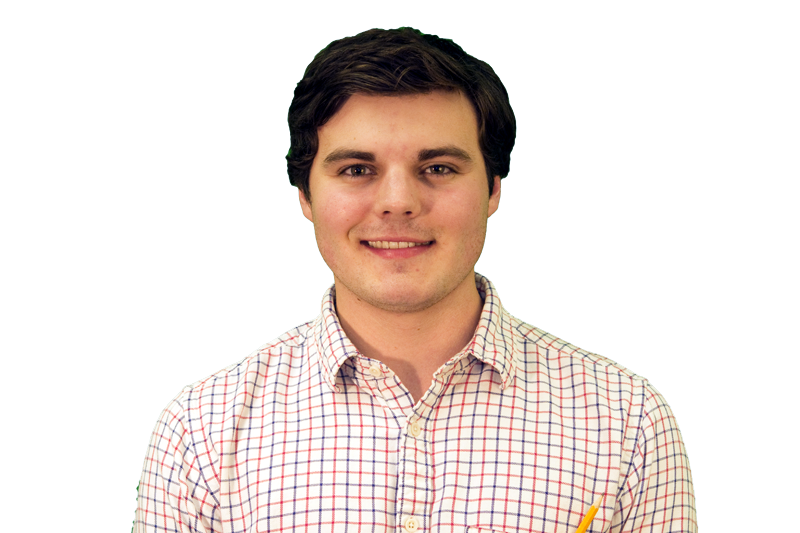Kirkland: Giving to elite universities — enough is enough
September 21, 2015
They say you shouldn’t bite the hand that feeds you, but in this case I think we’ve been fed plenty.
Wealthy Americans donate way too much money to prestigious private colleges and universities. As a student at one of these schools, I am the direct beneficiary of this giving. In the coming year, for example, I will benefit from the resources of the Buffett Institute, named in honor of the unprecedented $100 million gift Roberta Buffett gave Northwestern last spring. But there are far better ways for rich people to spend their money. We should encourage other forms of philanthropy that offer more tangible benefits to more needy beneficiaries.
In a time of growing wealth and opportunity inequalities, disastrous public health crises around the world and devastating budget cuts at public universities in the United States, donating to schools like NU is not the kind of philanthropy we should celebrate. It is not the moral equivalent of giving to NGOs that house and feed refugees across the world, or even capitalizing under-funded public universities in our own backyards. And yet, both the federal tax code and the mass media see them equally beneficial and morally laudable.
Instead, we should call this philanthropy what it is. Although certainly better than just sitting on piles of cash or building a new wing for the mansion, it is, in the end, a comparatively shallow form of philanthropy with outsized personal benefit to the benefactor and oversold gains to society as a presumptive benefactee.
These schools do not need the money. Donations in this country overwhelmingly flow to the colleges and universities that make up the 1 percent of higher education. This group is already fantastically wealthy, with individual endowments outgrowing the GDPs of small countries (Harvard, with nearly $40 billion in the bank, recently beat out Jordan and is quickly gaining on Ghana).
And the gulf between the 1 percent and the rest grows wider every year as the monied class continues to donate selectively. Of the roughly 4,700 colleges and universities in the U.S., the top 40 schools together claim 59 percent of all donations. NU itself raised more than $600 million last year, the fourth highest total of any school in the country.
Much of this money comes from really, really rich people. Earlier this summer, Harvard made headlines when it announced a $400 million donation from hedge fund manager John Paulson for a new engineering and applied sciences center in his name. Critics like Malcolm Gladwell were quick to highlight the ridiculousness of announcing these gifts as “charity.” He joked on Twitter, “apparently $200 mil is earmarked for a satellite campus on St Barts.”
Harvard, like NU, already has more money than it can spend. And 95 percent of it just sits there, compounding. One fund manager recently quipped, “the joke about Harvard is that it’s a hedge fund with a university attached to it.”
Can you imagine what could be done if that comment referred instead to organizations directly devoted to, say, reducing global poverty? Or fighting the HIV pandemic in Swaziland, where one in four adults is living with the virus?
Or, if higher education really is your hobby-horse, why not donate to the University of Wisconsin, which, thanks to Scott Walker, faces a $300 million budget cut? Or the state university system in Arizona, which has seen tuition rates skyrocket 83.6 percent in seven years?
Inevitably, when the argument is made against giving rich schools more money, proponents counter that these schools represent a public good that benefits everyone. They point to groundbreaking biomedical research or the financial aid programs that change the lives of low-income students. These are valid claims. But when it comes down to it, the added value that comes with each dollar given to Harvard pales in comparison to the added value that comes with each vaccine, or each actual dollar given directly to the world’s poor.
Prestigious private universities are “crowded” funding spaces, where thousands of rich people line up to write the next check. Every new donation only grows the widening gap that separates the world’s privileged from the rest. If you’re a rich person who wants to make a difference, donate your money where it truly matters. If you’re a student, help try to change the narrative that showers praise on higher education philanthropy. Not all charity is created equal, so let’s stop subsidizing the most unequal of the bunch.
William Kirkland is a Weinberg senior. He can be reached at [email protected]. If you would like to respond publicly to this column, send a Letter to the Editor to [email protected].
The views expressed in this piece do not necessarily reflect the views of all staff members of The Daily Northwestern.


